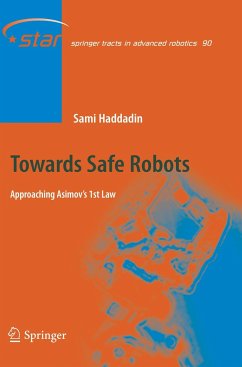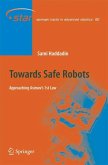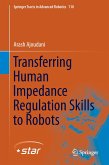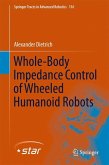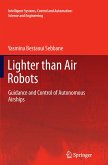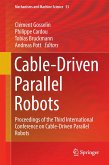The vision of seamless human-robot interaction in our everyday life that allows for tight cooperation between human and robot has not become reality yet. However, the recent increase in technology maturity finally made it possible to realize systems of high integration, advanced sensorial capabilities and enhanced power to cross this barrier and merge living spaces of humans and robot workspaces to at least a certain extent. Together with the increasing industrial effort to realize first commercial service robotics products this makes it necessary to properly address one of the most fundamental questions of Human-Robot Interaction: How to ensure safety in human-robot coexistence?
In this authoritative monograph, the essential question about the necessary requirements for a safe robot is addressed in depth and from various perspectives. The approach taken in this book focuses on the biomechanical level of injury assessment, addresses the physical evaluation of robot-human impacts, and isolates the major factors that cause human injuries. This assessment is the basis for the design and exploration of various measures to improve safety in human-robot interaction. They range from control schemes for collision detection, reflex reaction, and avoidance to the investigation of novel joint designs that equip robots with fundamentally new capabilities. By the depth of its analysis and exceptionally salient experimental work, this monograph offers one of the most comprehensive treatments of the safety challenge in the field.
In this authoritative monograph, the essential question about the necessary requirements for a safe robot is addressed in depth and from various perspectives. The approach taken in this book focuses on the biomechanical level of injury assessment, addresses the physical evaluation of robot-human impacts, and isolates the major factors that cause human injuries. This assessment is the basis for the design and exploration of various measures to improve safety in human-robot interaction. They range from control schemes for collision detection, reflex reaction, and avoidance to the investigation of novel joint designs that equip robots with fundamentally new capabilities. By the depth of its analysis and exceptionally salient experimental work, this monograph offers one of the most comprehensive treatments of the safety challenge in the field.

